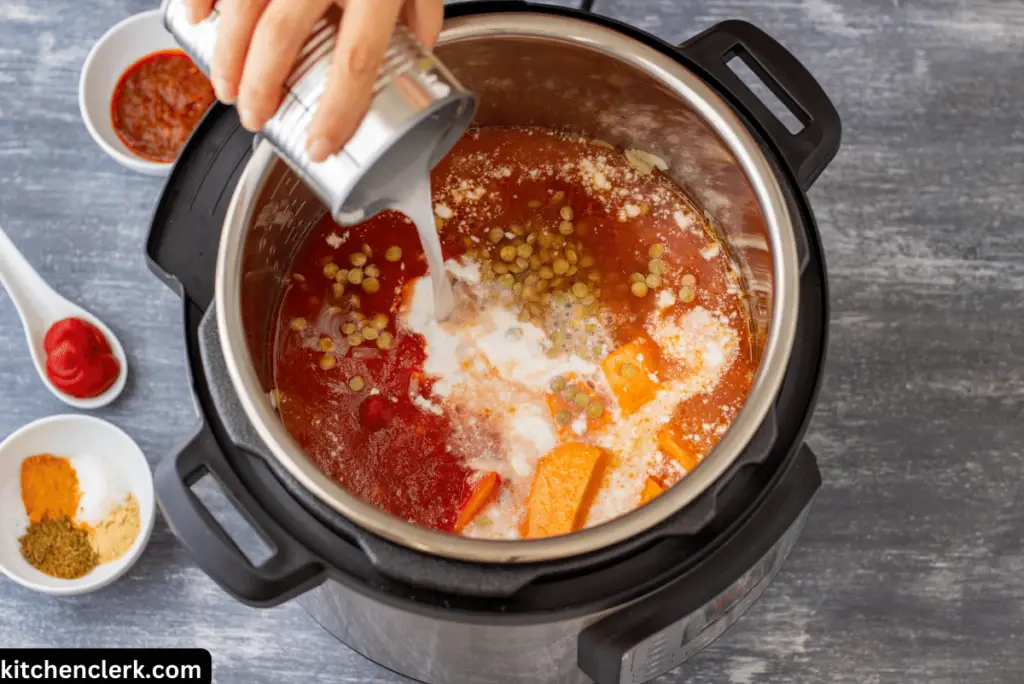Are you a pressure cooking enthusiast looking to elevate your culinary adventures? If so, you’ve probably wondered whether it’s safe to use oil in a pressure cooker. Well, I’m here to shed some light on this topic and provide you with expert insights on using oil in your pressure cooker.
When it comes to cooking, oil plays a vital role in adding flavor, preventing sticking, and achieving that perfect golden browning. However, using oil in a pressure cooker requires some consideration due to the sealed environment in which it operates. It’s crucial to understand the impact of using oil to ensure both safety and optimal cooking results.
In this article, I will address this question and provide you with a comprehensive understanding of using oil in a pressure cooker.
Drawing from my personal experience and research, I will discuss the benefits and potential drawbacks of incorporating oil into your pressure cooking routine. So let’s dive in and explore the possibilities of using oil in a pressure cooker.
Can You Use Oil in a Pressure Cooker?

Yes, you can use oil in a pressure cooker. Oil can help with browning, prevent food from sticking, aid in heat transfer, and enhance flavors. However, it’s important to choose oils with high smoke points and use them sparingly to avoid safety hazards and excessive greasiness. Always refer to your pressure cooker’s manual for specific guidelines.
Benefits of Oil on Pressure Cooker Performance
1. Browning and flavor enhancement
One advantage of using oil in a pressure cooker is the ability to brown ingredients before pressure cooking. Browning imparts a rich caramelized flavor, creating depth and complexity in your dishes.
Whether you’re searing meat or sautéing aromatics, a drizzle of oil can greatly enhance the taste and appearance of your meals. However, it’s important to note that not all pressure cookers are suitable for browning. Be sure to check your pressure cooker’s manual and guidelines before attempting this technique.
2. Prevent food from sticking
Another benefit of using oil in a pressure cooker is its ability to prevent food from sticking to the cooking surface. This is particularly useful when cooking ingredients that have a tendency to adhere to the bottom of the pot, such as rice or starchy foods. Applying a thin layer of oil to the bottom of the pressure cooker can create a non-stick barrier, making cleanup easier and ensuring that your food is evenly cooked.
3. Heat transfer and cooking efficiency
Oil’s heat-conducting properties can help facilitate the transfer of heat in a pressure cooker, ensuring that food is cooked thoroughly and evenly. This can be especially advantageous when preparing dishes that require precise temperature control. The oil aids in distributing and maintaining heat throughout the cooker, resulting in consistent cooking results.
Potential Drawbacks and Safety Concerns
While incorporating oil into your pressure cooking routine can offer various benefits, there are certain considerations and safety concerns to bear in mind.
1. Foaming and clogging
Certain oils, such as olive oil, have a tendency to foam when subjected to high heat. This foaming can lead to clogging of the pressure release valve or the vent pipe, disrupting the cooking process and potentially causing a safety hazard. To avoid this issue, it is recommended to use oils with a high smoke point, such as canola or vegetable oil, in your pressure cooker.
2. Excessive oil consumption
Using excessive amounts of oil in a pressure cooker can lead to an overly greasy end result. It’s important to exercise caution and moderation when applying oil to your dishes. In most cases, a small amount of oil is sufficient to achieve the desired results without overpowering the flavors of your ingredients.
Best Practices for Using Oil in a Pressure Cooker
To ensure optimal results and safety when using oil in a pressure cooker, here are some best practices to follow:
1. Choose the right oil
Selecting the appropriate oil is crucial when using it in a pressure cooker. Opt for oils with high smoke points, such as canola, vegetable, or peanut oil, as these oils can withstand the high temperatures typically associated with pressure cooking. Oils with low smoke points, like extra virgin olive oil, are not recommended for pressure cooking due to their tendency to foam and potentially clog the pressure release valve.
2. Use oil sparingly
When adding oil to your pressure cooker, less is more. Start with a small amount and gradually increase if necessary. This will prevent your dish from becoming overly greasy and maintain the balance of flavors.
3. Follow your pressure cooker’s guidelines
Always consult the manual and guidelines provided by the manufacturer of your pressure cooker. Each cooker may have specific recommendations regarding the use of oil and browning techniques. Following these guidelines will help you achieve the best results while ensuring the safety of yourself and your kitchen.
4. Consider alternative cooking methods
If you’re concerned about using oil in your pressure cooker or your cooker is not suitable for browning, there are alternative cooking methods you can explore. Sautéing ingredients in a separate skillet or using a stovetop for browning can still provide desirable results before transferring the ingredients to the pressure cooker for further cooking.
Conclusion
Using oil in a pressure cooker can offer numerous benefits, from enhancing flavors to preventing food from sticking. However, it’s important to exercise caution and follow best practices to ensure safety and optimal results.
By choosing oils with high smoke points, using them sparingly, and following the guidelines provided by your pressure cooker’s manufacturer, you can confidently incorporate oil into your pressure cooking routine.
Have you tried using oil in your pressure cooker? Share your experiences and tips in the comments below.
